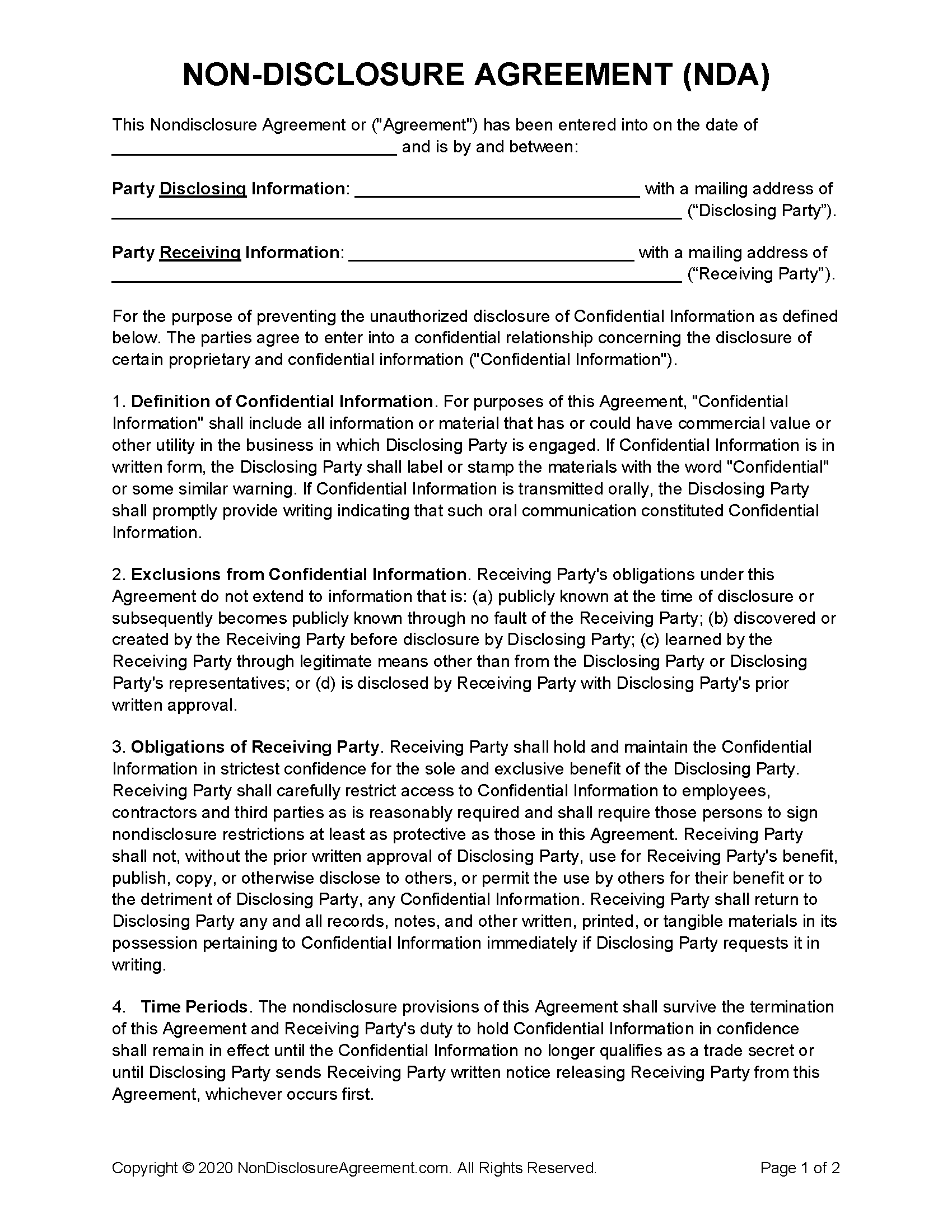What is a Non-Disclosure Agreement (NDA)?
A Non-Disclosure Agreement (NDA) is a legal contract that prevents parties from sharing confidential information with others. It’s often used in business, partnerships, and other situations where sensitive information needs to be shared.
Why Do You Need an NDA?
Here are some reasons why you might need an NDA:
Protecting Intellectual Property: If you’re sharing ideas, designs, or other proprietary information, an NDA can help ensure that it remains confidential.

Image Source: nondisclosureagreement.com
Free NDA Template
[Insert a link to a free NDA template]
How to Use the Template
1. Download the template.
2. Fill in the required information. This includes the names of the parties, the date, and the scope of the confidential information.
3. Review the terms carefully. Make sure you understand the terms and conditions of the NDA.
4. Sign and date the agreement. Both parties should sign and date the NDA.
Conclusion
A Non-Disclosure Agreement is a valuable tool for protecting confidential information. By using a free template, you can easily create a legally binding NDA that safeguards your sensitive data.
FAQs
1. What is the difference between a mutual NDA and a unilateral NDA?
2. Can I negotiate the terms of a free NDA template?
3. How long does an NDA typically last?
4. Can I revoke an NDA after it has been signed?
5. What happens if a party breaches an NDA?
Free Non Disclosure Agreement Template